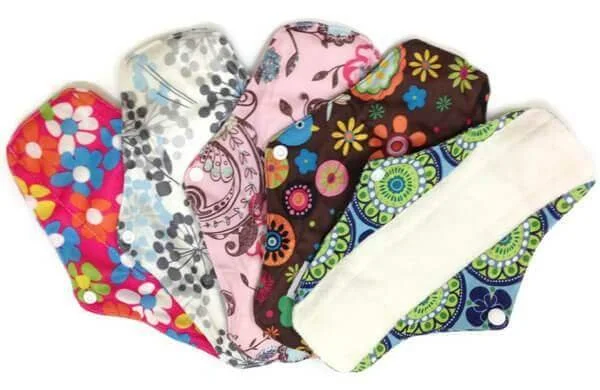Helping sloths by going plastic-free: 11 daily items you can change today!
July is plastic-free month. It is an opportunity to reflect on how we can reduce our plastic consumption, which not only harms our marine and terrestrial ecosystems but threatens our health as well.The good news is you don't have to reinvent the wheel! There are lots of helpful guides and websites filled with tips and plastic-free alternatives.
So here are 11 daily items that you can exchange for plastic-free alternatives!
1) Plastic-free cigarettes
You have probably heard about plastic bags tragically making their way into marine ecosystems and filling the stomachs of sea turtles. However, the most littered item on Earth are cigarette buttswhich are the most frequently found item during beach clean ups.
The filters in cigarette butts can take up to 10 years to break down into smaller pieces (micro-plastics). As they break down they release nicotine and heavy metals into the environment.
Unfortunately, filters don't improve lung health overall. There are some companies such as Greenbutts that manufacture biodegradable filters. However, even biodegradable filters will release their captured toxins upon breaking down.
So if you do smoke, you can reduce your daily use of plastic by opting for cigarettes without filters.
Cigarette butts end up in the digestive tracts of many kinds of wildlife/Source: https://edition.cnn.com/2019/01/24/health/dirty-truth-about-cigarette-filters/index.html
2) Plastic-free cotton swabs
Cotton swabs, cotton buds, Q-tips - they have a lot of names. Now even these single-use plastic products can be replaced by biodegradable alternatives!
3) Plastic-free toothbrushes and toothpaste
Toothbrushes and tubes of toothpaste are a recurrent sources of plastic pollution. Fortunately, bamboo toothbrushes and refillable toothpaste jars are great substitutes!
Feeling crafty? You can make toothpaste from scratch yourself using activated charcoal, bentonite clay, and peppermint essential oil (just be sure not to store it in a metal container)
4) Plastic-free razors
Like toothbrushes, disposable razors are common daily items that lead to an accumulation of plastic waste overtime. Although razors with replaceable heads are better than entirely disposable ones, there are razors that are plastic-free altogether! Paired with the right shaving cream, these plastic-free razors not only reduce your environmental footprint but minimize irritation due to the harsh chemicals found in most shaving foams.
A plastic-free shaving experience is possible by going back to the tried and true methods of shaving/Source: Plastic Freedom
5) Plastic-free face and body scrubs
Exfoliating (i.e. gently scrubbing away dead skin cells) is a great way to maintain skin health. There are a variety of face and body scrubs on the market, but many of them unfortunately contain plastic microbeads to to aid in this process. These microplastics are too small to be filtered out by water treatment plants and therefore wind up in our oceans. Fortunately a number of companies have already switched to biodegradable alternatives or have pledged to remove plastic microbeads from their products.
There are a variety of recipes for face and body scrubs you can make at home.
6) Shampoo bars
Unfortunately many cosmetics, in addition to being packaged in plastic, are made from chemicals that threaten the health of humans and ecosystems alike. If you are concerned about the products you are currently using you can look up their safety status at the Environmental Working Groups's Skin Deep database (or download their app!).
Moreover, many shampoos are designed to strip the natural oils from your hair and replace them with synthetic substitutes. Transitioning from conventional shampoo to using a shampoo bar can take a bit of patience but the results (and the health benefits) are well worth it!

7) Plastic-free makeup
You don't have to sacrifice the glamour by going plastic-free. Whether your daily routine consists of a bit of concealer or a full face of makeup, there are a lot of exciting plastic-free products that are also free from the harmful chemicals found in traditional makeup.
61% of popular lipstick brands were found to contain lead. Fortunately refillable makeup free from harmful chemicals is now available in many places/Source: Plastic Freedom
8) Plastic-free menstrual products
Menstrual cups and reusable period underwear solve a lot of problems. They drastically reduce plastic waste and water consumption and ensure that people suffering from period poverty, have a safe, long-term method to manage periods and avoid missing out on school.
Surprisingly, pads are composed of 90% plastic and the amount of plastic packaging used for tampons can be equally shocking. Menstrual cups drastically reduce plastic consumption, generating 99.6% less plastic waste than disposable pads and 94% less plastic waste created by tampons.
Even 100% cotton tampons can generate a significant environmental impact as cotton crops require impressive amounts of water.
There are lots of plastic-free menstrual products, from reusable pads, to period underwear to menstrual cups/ Source: https://www.treehuggerclothpads.com/?rfsn=1312907.28252
9) Refillable cleaning products
Buying in bulk is a great way to reduce plastic usage. However, companies such as Neat, have come up with an even better way to reduce plastic waste.
Many cleaning products are 90% water. Neat sells reusable spray bottles and offers concentrated refills in glass bottles that can be recycled.
10) Plastic-free sandwich wraps
Whether or not you are a sandwich eater, these food wraps can be used for a variety of food items. You can even make reusable food wraps at home by choosing a bit of your favorite cloth and melting on some beeswax!
Try to avoid products made by bees? These vegan food wraps are made from wax that would otherwise be disposed of during food processing.
11) Reusable tote bags
Single-use plastic bags are infamous for their uncanny ability to end up in the most unexpected places. Even places as remote as Mount Everest are struggling with pollution due to single-use plastics!
If you want to reduce your plastic consumption whilst supporting sloth conservation you can treat yourself to a reusable sloth tote (now 30% off for Plastic Free July)!
All the purchases from our Sloth Shop go towards sloth conservation!













